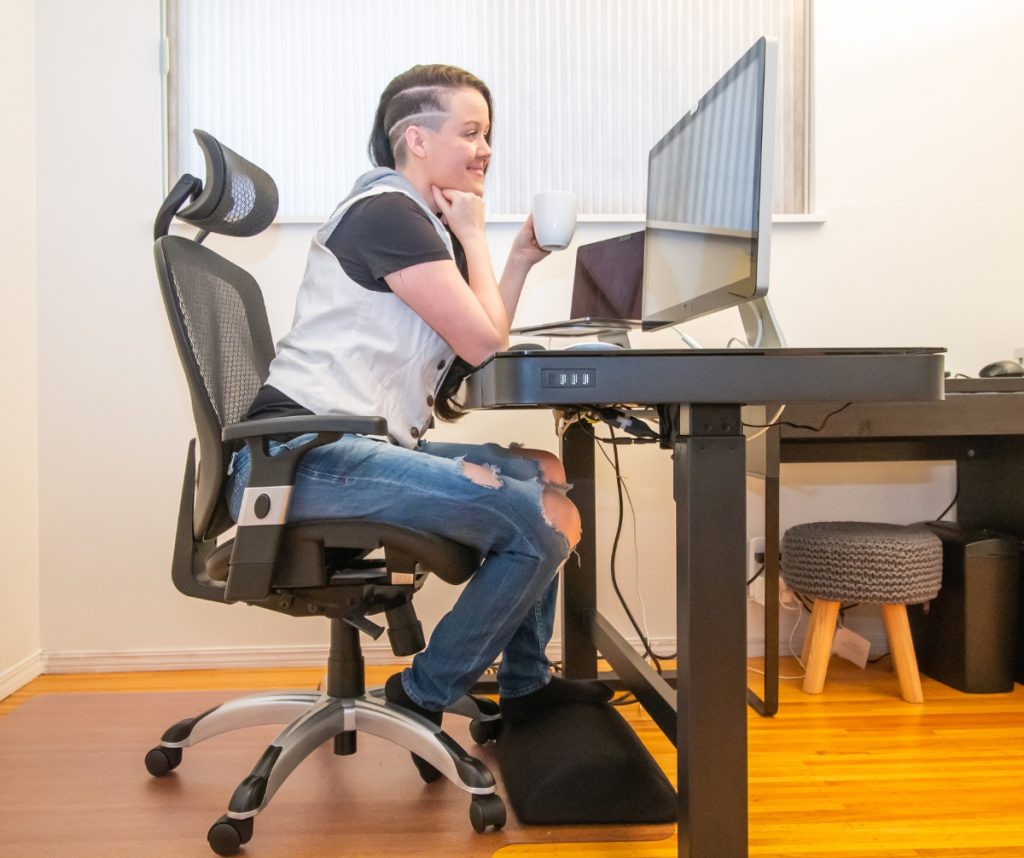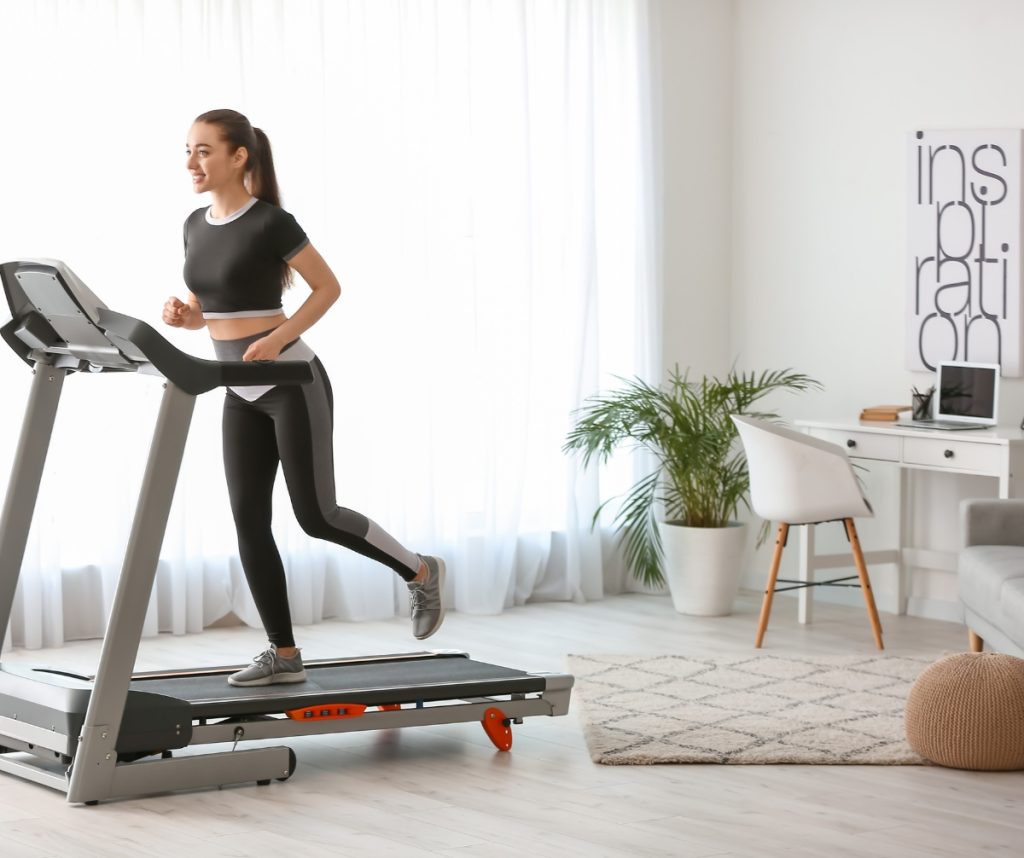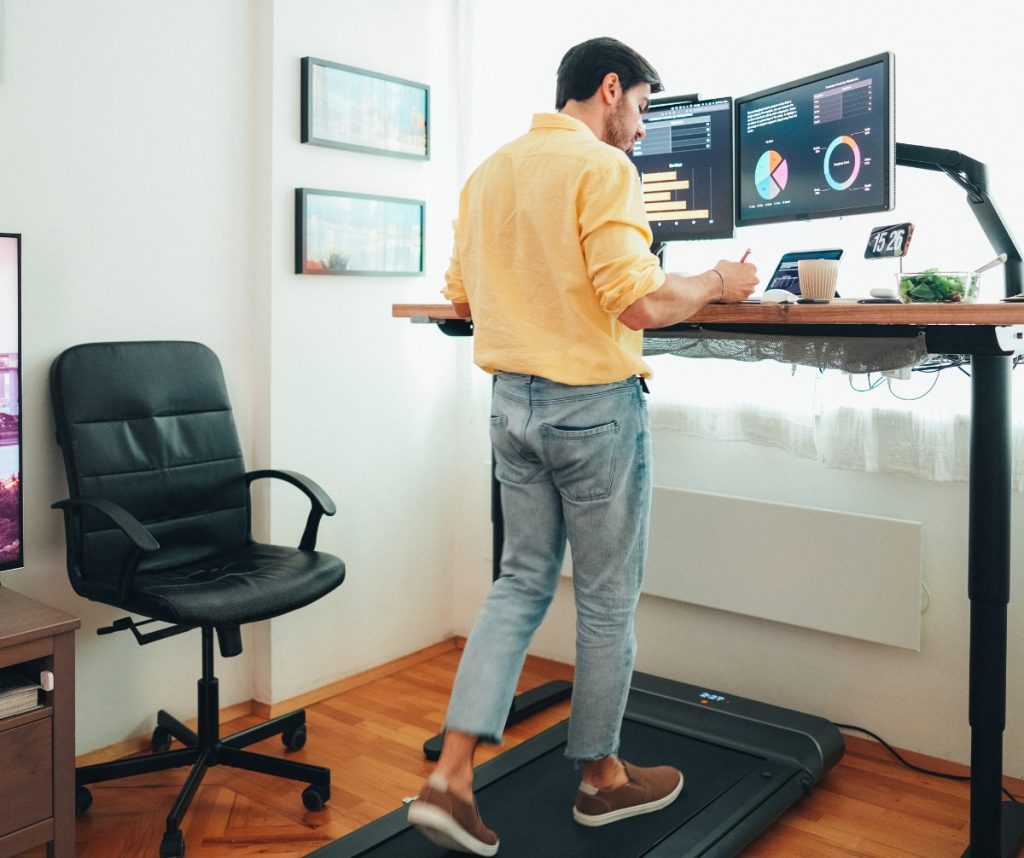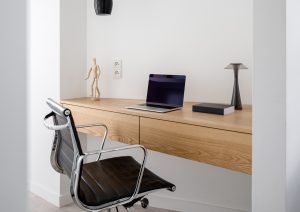The health benefits of working from home have made remote work popular these days. Many people now do their jobs from their houses instead of going to an office. This big change in how we work has brought many new and exciting benefits.
Post Contents
How Working from Home Improves Your Health?
There are various health benefits of working from home such as reduced stress, comfortable workspace, healthier eating habits, increased physical activity, and improved work-life balance.
Each of these health benefits of working from home can really change how we feel every day. Let’s dive into each one and see how working from home can make us healthier and happier.
The Impact of Reduced Commuting Stress on Your Health
Have you ever felt stressed about commuting to work every day? You are not alone. Many people feel pressured to dash through traffic or catch a crowded transport. It is not just inconvenient; it can also have a negative impact on your health.

When you spend a lot of time trapped in traffic or packed like sardines on public transit, your stress levels might skyrocket. This stress is not a trivial annoyance. It can cause headaches, high blood pressure, and difficulties sleeping. Furthermore, it makes you exhausted and grumpy all the time.
This stress can make people feel exhausted and grumpy even before they start their workday. Long commutes can also take away time that could be spent doing something enjoyable or relaxing.
But there is good news! Working from home can alleviate this type of stress. Without the daily commute, you can begin your day more relaxed.
How Working from Home Helps?
When you work from home, you don’t have to travel. This means no traffic jams or crowded buses. You can start your day in a calm and relaxed way. You can sleep a little longer or enjoy a quiet breakfast at home.
Without the stress of commuting, you can feel more refreshed and ready to work. This reduces stress and makes you feel better. With less stress, you can focus more on your work and be more productive. The benefits of reduced commuting stress are clear.

Benefits Beyond Stress Reduction
Not commuting also has other benefits. It saves money on gas, parking, or public transport. It reduces pollution, which is good for the environment. It also gives you more free time. Instead of spending time in traffic, you can spend time with your family, exercise, or do hobbies.
Advantages of Personalized Ergonomics in Your Home Office
One of the key health benefits of working from home is the ability to create a personalized ergonomic setup. Ergonomics, the science of designing workspaces to fit the user’s needs and to prevent discomfort or injury, plays a crucial role in overall health and productivity.
Ergonomics is about making your workspace comfortable and safe. This includes having the right chair, desk, and computer setup. Good ergonomics can prevent pain and injuries. If your workspace is not set up correctly, you might get back pain, neck pain, or headaches.

Problems with Office Ergonomics
In many offices, everyone uses the same kind of desks and chairs. These may not be comfortable for everyone. Some people might find their chairs too hard or their desks too high.
They might have to look at their computer screens at a bad angle, which can cause neck strain. In an office, it can be hard to change your workspace to fit your needs.
When working from home, individuals have the flexibility to tailor their work environment to suit their specific requirements, leading to significant wellness benefits.
Customization of Workspace
One of the health benefits of working from home is that you have the freedom to customize your workspace to your liking. Unlike traditional office settings, which often have standardized furniture and equipment, working from home allows you to choose items that best fit your body and working style.
This includes:
- Adjustable Desks
- Standing desks or sit-stand desks enable you to switch between sitting and standing positions, reducing the risk of sedentary lifestyle-related issues.
- Ergonomic Chairs
- Investing in an ergonomic chair that provides adequate lumbar support and can be adjusted for height and tilt can prevent back pain and improve posture.
- Monitor Placement
- Positioning your monitor at eye level and at the correct distance reduces strain on your neck and eyes.
- Keyboard and Mouse
- Using an ergonomic keyboard and mouse designed to reduce strain on your hands and wrists can prevent repetitive strain injuries such as carpal tunnel syndrome.

Enhanced Comfort and Reduced Stress
A personalized ergonomic setup not only improves physical health but also enhances comfort, leading to reduced stress levels. When your workspace is designed for comfort:
- Increased Comfort
- A well-designed workspace that reduces physical discomfort can enhance your overall sense of well-being.
- Reduced Stress
- Less physical strain means you can focus more on your work, reducing cognitive stress and improving mental clarity.
- Improved Mood
- Comfort and reduced stress contribute to a better mood, which can enhance productivity and overall job satisfaction.
Improved Physical Health
Proper ergonomics can have a profound impact on your physical health by mitigating the risks associated with prolonged sitting and poor posture. Benefits include:
- Lower Back Pain Reduction
- Ergonomic chairs and proper desk height prevent slouching and support the natural curve of your spine.
- Decreased Eye Strain
- Proper monitor placement and adequate lighting reduce the risk of eye strain, which is common with prolonged screen time.
- Prevention of Musculoskeletal Disorders
- Ergonomic equipment and correct posture help prevent musculoskeletal disorders, including back pain, neck pain, and repetitive strain injuries.
Healthier Eating Habits
In many offices, people often eat unhealthy snacks and fast food. There might be a vending machine filled with chips and candy. Sometimes, there’s not enough time to eat a proper meal, so people grab something quick and unhealthy. Eating like this can lead to weight gain, low energy, and health problems.

How Working from Home Helps?
When you work from home, you have better control over what you eat. You can cook healthy meals in your kitchen. You can also take the time to eat without rushing. This helps you make better food choices and eat healthier.
You can have fresh fruits, vegetables, and home-cooked meals instead of fast food. You can also stay hydrated by drinking more water.
Benefits of Healthier Eating
Eating healthier has many benefits. It gives you more energy and helps you stay focused. It can help you maintain a healthy weight and avoid health problems like diabetes and heart disease. It can also improve your mood and make you feel better overall.
Tips for Healthy Eating at Home
To eat healthier at home, start by planning your meals. Make a list of healthy recipes you enjoy. Keep your kitchen stocked with healthy foods like fruits, vegetables, whole grains, and lean proteins.
Avoid buying junk food so you’re not tempted to eat it. Take regular breaks to eat and make sure to drink plenty of water. To eat healthier at home, start by planning your meals. Make a list of healthy recipes you enjoy. Keep your kitchen stocked with healthy foods like fruits, vegetables, whole grains, and lean proteins.
For more tips on how to maximize the health benefits of working from home, check out this stay-at-home wellness guide.

The health benefits of working from home include fostering healthier eating habits. Without the temptations of office vending machines and the rush to grab fast food, remote workers can enjoy and control their diet.
Home kitchens allow for the preparation of nutritious meals, promoting better food choices and improved hydration. These healthier eating habits provide more energy, better focus, and overall improved well-being, highlighting a significant advantage of remote work.
Increased Physical Activity
Exercise is very important for our health. It helps us stay fit, reduces stress, and improves our mood. It can also prevent health problems like heart disease, diabetes, and obesity. However, finding time to exercise can be hard when you have a long workday and a long commute.
Problems with Exercise in Office Life
In an office, people often sit for long periods without moving. Sitting too much can cause health problems like back pain, poor posture, and weight gain. It can also make you feel tired and sluggish. Office workers might find it hard to exercise because they have to spend a lot of time commuting and working.

One of the significant health benefits of working from home is the ability to maintain a more active lifestyle. In an office, people often sit for long periods without moving, leading to health problems like back pain, poor posture, and weight gain.
This sedentary lifestyle can also make you feel tired and sluggish. Moreover, office workers might find it challenging to exercise regularly due to the time spent commuting and working.
How Working from Home Helps
When you work from home, you have the flexibility to incorporate movement and exercise into your daily routine more easily. Without the need to commute, you can use that extra time for physical activities such as stretching, walking, or even a quick workout.
This helps in mitigating the negative effects of prolonged sitting, such as back pain and poor posture, and promotes overall physical health.
You can take short breaks to stretch or do quick workouts. You can also go for a walk or a run during your lunch break. With more time and flexibility, you can be more active and stay fit. You can also set up a small exercise area in your home with equipment like dumbbells, a yoga mat, or a treadmill.
Tips for Staying Active at Home
To stay active at home, start by setting a schedule that includes dedicated times for short workouts throughout the day. Planning your day with intentional breaks for exercise can significantly enhance the health benefits of working from home.
Use online workout videos or apps to guide you through various exercises, from yoga to high-intensity interval training (HIIT). Taking regular breaks to stretch and move around helps combat the negative effects of prolonged sitting, such as back pain and poor posture.
Incorporate movement into your work routine by standing or walking during phone calls or virtual meetings. This not only keeps you active but also helps maintain energy levels and focus. Making exercise a consistent part of your daily routine, much like brushing your teeth, ensures that you remain committed to staying active.

By integrating these practices, the health benefits of working from home become more pronounced, leading to improved physical health and overall well-being.
Enhanced Work-Life Balance
One of the significant health benefits of working from home is its enhanced work-life balance. Work-life balance means having enough time for both work and personal life, which is crucial for overall well-being.
When you work from home, you eliminate the daily commute, giving you more time to spend with family, relax, and engage in activities you enjoy. This increased flexibility allows you to manage your work schedule around personal commitments, reducing stress and promoting a happier, healthier lifestyle.
A good work-life balance helps in maintaining mental health by reducing anxiety and preventing burnout. It provides more opportunities for self-care, such as exercising, cooking healthy meals, and taking breaks when needed. You can take breaks to spend time with your kids or do something you enjoy. This helps you feel more satisfied and less stressed.
This balance not only boosts productivity but also improves your overall quality of life. The health benefits of working from home, including a better work-life balance, contribute significantly to your happiness and long-term health.
Tips for Achieving Work-Life Balance at Home
Achieving a good work-life balance at home is essential for reaping the full health benefits of working from home. Start by setting clear boundaries between work and personal time.
Establish a dedicated workspace where you can focus solely on work, keeping it separate from areas meant for relaxation and leisure. Set regular work hours and stick to them, ensuring that you start and end your workday at consistent times.
Take regular breaks throughout the day to relax and engage in activities you enjoy, such as reading, exercising, or spending time with family. This helps in reducing stress and prevents burnout. Make time for hobbies and personal interests, as they contribute to a well-rounded and fulfilling life.

Additionally, prioritize self-care by getting enough sleep, eating healthy meals, and staying physically active. Avoid overworking by setting realistic goals and managing your time effectively. By following these tips, you can achieve a balanced lifestyle and fully enjoy the health benefits of working from home.
Conclusion
The health benefits of working from home are clear and significant. By eliminating the stress and time associated with commuting, individuals can enjoy a more relaxed start and end to their workday. Additionally, remote work encourages increased physical activity by offering more flexibility to incorporate movement and exercise throughout the day.
These changes collectively enhance both physical and mental well-being. Reduced stress, better nutrition, and more exercise contribute to improved energy levels, mood, and overall health. The ability to achieve a better work-life balance further supports mental health by allowing more time for family, hobbies, and relaxation.
If you have the opportunity to work from home, embrace it and enjoy the many health benefits it offers.






